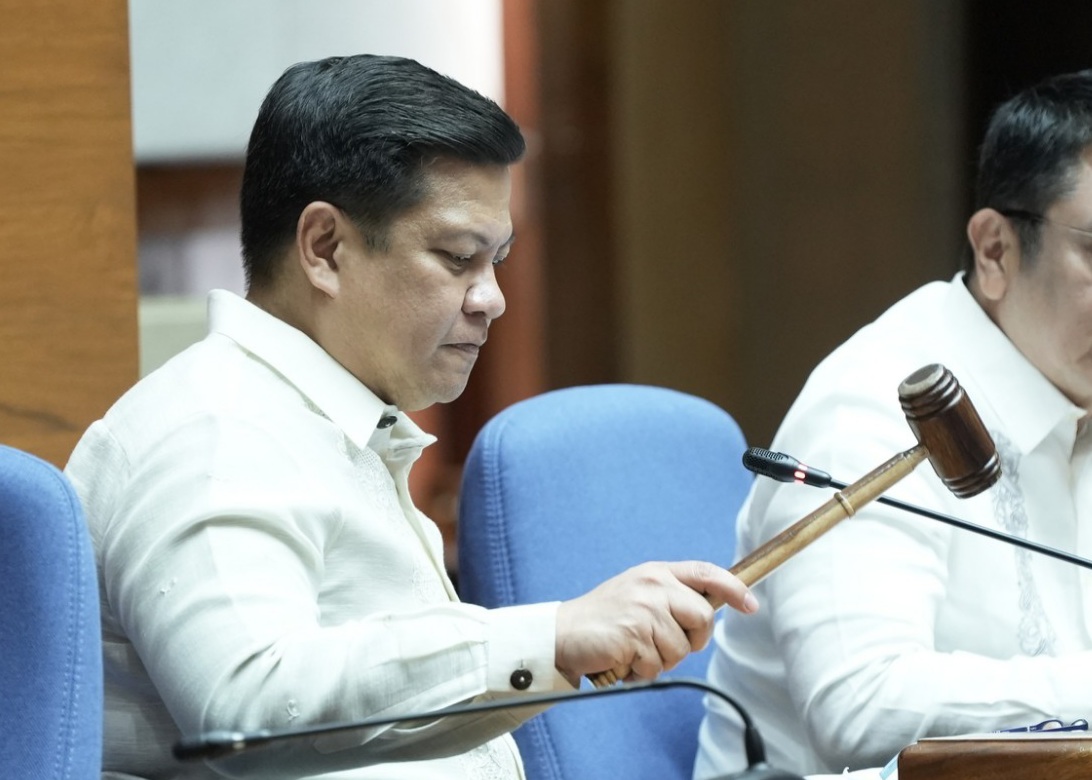Dalipe justifies House submission of economic Cha-cha to Comelec ahead of Senate
At A Glance
- The proposal to transmit Resolution of Both Houses (RBH) No.7 straight to the Commission on Elections (Comelec) following its approval in the House of Representatives is justified, as far as Majority Leader Zamboanga City 2nd district Rep. Mannix Dalipe is concerned.
 Zamboanga City 2nd district Rep. Mannix Dalipe (PPAB)
Zamboanga City 2nd district Rep. Mannix Dalipe (PPAB)
The proposal to transmit Resolution of Both Houses (RBH) No.7 straight to the Commission on Elections (Comelec) following its approval in the House of Representatives is justified, as far as Majority Leader Zamboanga City 2nd district Rep. Mannix Dalipe is concerned.
This, despite the imminent scenario that the House will beat the Senate by a few months when it comes to passing their respective economic Charter change (Cha-cha) measures.
According to Dalipe, there's no office that's authorized to receive and decide on the House's RBH No.7--and in the case of the Senate, RBH No.6--other than Comelec.
"So if we have three-fourths vote on RBH !No.7, and everything has been complied with in accordance to the Constitution, then my suggestion is we forward it to the [Comelec]," Dalipe told reporters Monday afternoon, March 18.
"That is my interpretation that the House and the Senate will forward it to Comelec. Because ultimately it will be Comelec who will finally decide it. It is up to be presented to the, to our voters in a plebiscite," he said.
"Eh ang ultimately magde-decision niyan yung Comelec. So sila yung magsasabi. Basta wala naman kasi iba pang opisina na pwede i-forward ‘to kung hindi sa [Comelec]," noted the official of the House, which has traditionally been more expeditious with measures to amend the 1987 Constitution.
(Ultimately, the decision will be made by Comelec. They will make the call. There's no other office that we can forward it to except Comelec.)
"Because in the law, it is definitely Comelec who will decide. If we have complied and there is a sufficient number of votes as stated in the Constitution, that they can ultimately schedule for a plebiscite on [RBH No.7]," Dalipe further explained.
The 300-plus strong House of Representatives is poised to approve RBH No.7 on third and final reading Wednesday, March 20. The chamber is expected to easily attain the three-fourths vote of 232.
The Senate is still tackling their economic Cha-cha measure, RBH No.6, at the subcommittee level. Once it reaches plenary consideration there, 18 votes from the 24 senators are needed to approve it on third reading.
Congress (House and Senate) is set to go on break on March 22. It won't resume sessions until April 29, meaning the senators in particular won't be able to act on RBH No.6 for another five weeks.
ALSO READ:
https://mb.com.ph/2024/3/17/true-to-the-timeline-house-eyes-final-approval-of-rbh-7-this-week
But Dalipe says he's optimistic that the Senate would still be able to pass RBH No.6--a near exact copy of RBH No.7. Conversely, the Senate will have to transmit RBH No.6 to Comelec.
Then comes the plebiscite, where the Filipino people will ultimately decide whether or not to adopt the proposed economic amendments.
"And the Comelec will say kung i-schedule na nila ng plebisito or hindi pa. Kasi nandun naman sa batas kung wala nang problema (And the Comelec will say when if it will already schedule the plebiscite or not yet. Because it's stated in the law that if there are no more problems) the [Comelec] should schedule it...
"Kung wala na pong problema (If there are no more problems), Comelec can schedule it not earlier than 60 days, but not later than 90 days," Dalipe said.